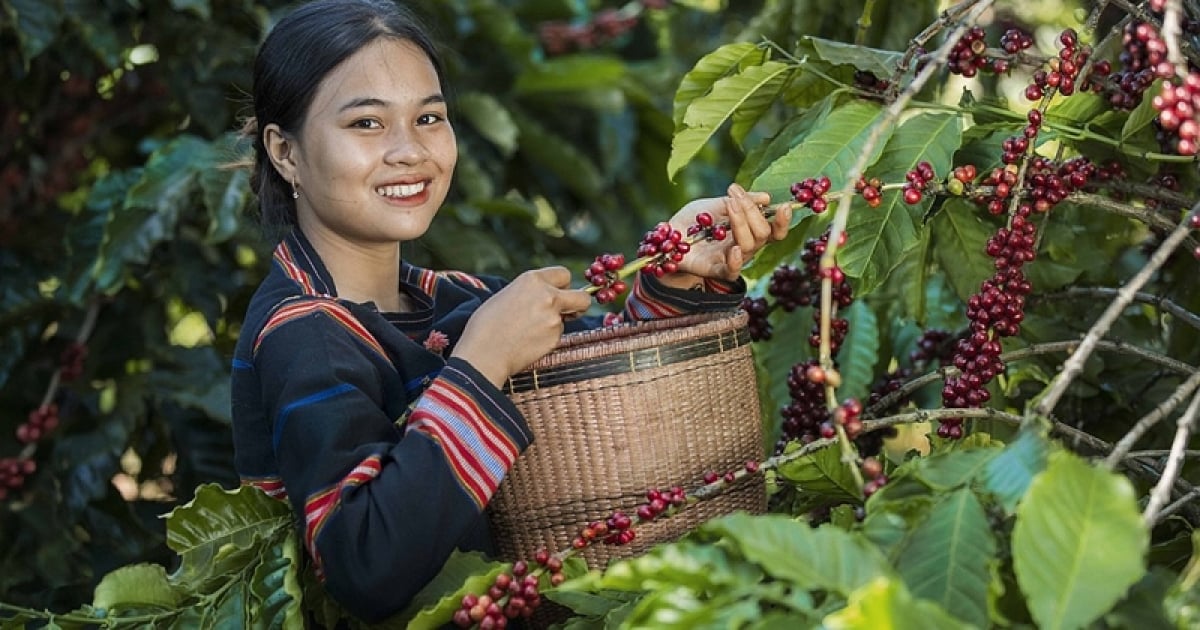Did you know that Cuba, once a beacon in coffee production in the Caribbean and the world, sent experts to Vietnam to teach them the best cultivation techniques? In the 1970s, Cuba and Vietnam established an agricultural cooperation relationship as part of the "solidarity" among socialist countries. During this time, Cuba dispatched agricultural experts, particularly in coffee cultivation, to assist Vietnam in developing its coffee industry.
This collaborative program focused primarily on the Central Highlands of Vietnam, where Cuban specialists provided training and shared cultivation and agricultural management techniques, enhancing local practices. During those years, Cuban expertise in coffee cultivation, particularly in harvesting and processing techniques, played a crucial role in boosting Vietnamese production.
With the help of these Cuban experts, Vietnam transitioned from being a modest coffee producer in the 1980s to becoming the world's second-largest coffee exporter over the years. Cuban collaboration was key in developing Vietnam's robusta coffee plantations, which now dominate the global market.
What was once a symbol of cooperation and agricultural leadership is now a stark reminder of the absolute collapse of Cuban agriculture. Ironically, Cuba, which taught Vietnam how to cultivate coffee, is now forced to import it from the Asian country.
This decline is not an isolated event; it is part of the long and systematic destruction of Cuban agriculture, driven by the centralizing and absurd policies of Fidel Castro. What was once a fertile and prosperous island, capable of feeding its population and exporting agricultural products worldwide, now languishes in agricultural misery, forcing the country to rely on others for the most basic needs.
The coffee irony is merely a symbol of a larger disaster. For decades, Castro's revolution was touted as the solution to inequality and the exploitation of the country's resources, but the result was exactly the opposite. The cattle industry, which once allowed every Cuban access to beef and fresh milk, has plummeted to the point where beef is a luxury few on the island can afford. Even milk, which Castro promised would be abundant, has vanished from the daily lives of ordinary Cubans.
The same pattern repeats in the sugar industry, which was once the economic engine of the country. Cuba went from being the world's largest sugar exporter to a state where its mills are rusted and in ruins, unable to compete in the global market or meet domestic needs. A similar situation exists in the production of fruits and vegetables, which once supplied both local consumption and foreign markets. Today, these products are scarce, and imports have taken over the markets.
Cuba went from being a role model to a case study in what not to do in agricultural management. The story of Cuban coffee and its current dependence on imports is not just a painful irony; it is tangible evidence of a failure of historic proportions. Meanwhile, the Cuban people continue to pay the price of these misguided decisions, facing scarcity in what was once a land of plenty.
Gone are the days when Cubans could sing, "Ay mama Inés, ay mama Inés, Todos los negros tomamos café."
Understanding Cuba's Agricultural Decline
Here are some frequently asked questions addressing the key points of Cuba's agricultural decline and its current reliance on imports.
What role did Cuba play in Vietnam's coffee industry development?
Cuba sent agricultural experts to Vietnam in the 1970s to teach coffee cultivation techniques, significantly contributing to the growth of Vietnam's coffee industry.
How did Cuba's agricultural policies lead to its current decline?
Cuba's decline in agriculture is attributed to the centralizing and inefficient policies implemented by Fidel Castro, which systematically destroyed the country's agricultural productivity.
Why is Cuba now importing coffee from Vietnam?
Due to the collapse of its own coffee industry, Cuba is now reliant on imports from Vietnam, which has become a major global coffee exporter thanks to the initial assistance from Cuban experts.
What other agricultural sectors in Cuba have been affected by these policies?
Aside from coffee, the cattle, sugar, and fruit and vegetable industries have also suffered significant declines due to the same centralizing policies, leading to widespread scarcity and increased reliance on imports.
